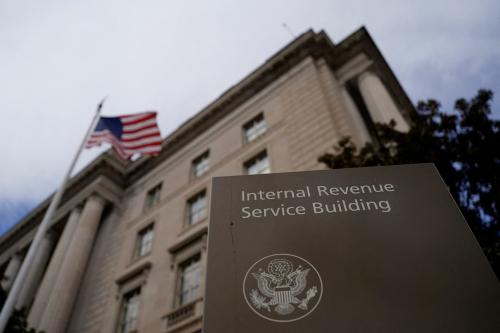For Bernie Sanders, the Nevada caucuses were tough. Sure, his supporters have much to cheer about. Just a year ago he was an unknown candidate, and this week he came within five points of beating what he rightly calls “the most powerful political operation in America” in a state considered part of the Clinton firewall. He should take pride in what he has organized, accomplished and the people who he has connected to. And frankly, any Clinton supporter who diminishes what Sanders’ campaign has done is doing a disservice to their party and to their candidate. Sanders has managed something Clinton has been ill-equipped to do: connect with a variety of demographic groups who love Barack Obama but feel left behind by Obama’s recovery. Clinton has cloaked herself in the Obama record, and, in the process, she has alienated those who have not reaped the fruits of his progressive labor.
The Clinton campaign language—that they always knew the primary would be competitive and that Sanders candidacy would catch on—is pure hogwash. No one expected that so many Americans would “feel the bern.” Media, the party, voters, and Brooklyn were all caught off guard by Sanders’ appeal. Yes, Sanders can be labeled a one issue candidate, or too extreme, or unelectable, but there is a reality in his message. He’s tapped into a growing discontent among liberals, moderates, and conservatives that the system is stacked against them and change was necessary. Americans are angry, and love him or hate him, Bernie Sanders has effectively talked to those angry voters. Hillary Clinton has not.
Despite her disconnect with the discontented, Clinton remains a strong candidate. She won the Nevada caucuses not in a landslide, but handily enough to overcome the nail-biting, skin-of-the-teeth success she saw in Iowa. She has not yet clinched the nomination, technically. But a 30 point lead in South Carolina combined with robust support in many of the March 1st Super Tuesday races means that Clinton—always the front-runner—is in a bullish position to clinch the nomination in short order.
Although Bernie Sanders is less likely to be the Democratic presidential nominee now than he was even a week ago, that should not diminish his importance in this race and the impact he has had on Secretary Clinton. So, let’s break down why Sanders is still an important player in the presidential race.
Clinton supporters are often egotistically dismissive of Sanders’ candidacy and his supporters. They claim he is too populist, too lofty, too idealistic. All of those things may be true, but they miss the point. The self-declared democratic socialist, a widely anonymous Senator from Vermont, and an awkward guy who consistently looks uncomfortable playing the part of a politician, gave Hillary Clinton a run for her money. Any effort to minimize what Sanders has done wrongly discounts a surprisingly powerful political force.
He ran and continues to run a campaign of big ideas that connects with many voters. He speaks not just to the hippie-liberal Vermont demographic, but to all walks of American life—young voters, voters of color, moderates, conservatives, and anyone who feels betrayed by the current state of American politics. That is a big group that most candidates—Clinton and every Republican candidate but Trump—has underestimated.
But Sanders has done much more. He has injected passion into the Democratic race—a passion Clinton would not inspire if she marched to the convention in Philadelphia devoid of competition, readying herself for a coronation. The Sanders supporters who are not convinced of Clinton’s value or who outwardly dislike her have done much to open Clinton’s eyes. She may have entered the presidential race with the ego of an incumbent president but she quickly got knocked down to size. Sanders supporters have pushed Clinton in directions she never expected to go. They have made her change her language, her message, and her campaign style. It is not the path she wanted, but it is probably the path that best serves her. Bernie Sanders has pushed her to the left on many issues, but he has also made Clinton a better candidate. And my guess is she knows it.
Sanders’ failure to upset Clinton in Nevada was tough for his campaign. He came into the race riding a wave of momentum from outperforming expectations in Iowa and mopping the floor in New Hampshire. He probably beat expectations in the Silver State too, but he needed a win to change the narrative, and ultimately the narrative was not changed. In Nevada, Clinton was reasserted as the frontrunner and she remains a very tough candidate to beat. Looking forward, her bullish support in South Carolina and essentially all of the Super Tuesday states makes a Sanders nomination all that more unlikely.
His campaign, however, has not been without merit. He brought to the surface a variety of issues that Clinton had to address—income inequality, corporate power, campaign finance, and others—that she may have only paid lip service to but for a legitimate primary challenge. Sanders may not have changed Clinton’s mind, but he surely changed her message, and that is a good thing for any Democrat.
She has been forced to take on a series of issues that matter to Americans of all stripes, and she will enter the general election campaign stronger for it. Combine all of that with the passing of Justice Scalia and the prospect that the Senate may hold up the confirmation of his replacement, the Clinton candidacy and its prospective Supreme Court pick becomes all the more important in the grander scheme of American politics. The desire to overturn Citizens United seems almost liturgical to the Sanders campaign and must now be a central part of the thinking of a future Clinton administration.
Sanders’ impact on the next Democratic administration will be tremendous, even if he ultimately fails to become the nominee. Perhaps, in some ways, that was his original goal: a recognition he would not win the battle, but could have a dramatic impact on the fight. Yes, he has made Clinton spend more money in the primary than she expected. Yes, he threw her off her game on a variety of issues. Yes, he has enraged a group of young, progressive, and change-oriented Democrats to want something other than one more Clinton. But, at the end of the day, he pushed Secretary Clinton to think and talk and address a series of issues that will make her a better candidate in November. That rhetoric will ultimately help bring many Sanders supporters into her corner.
Sanders’ insurgence may not have been the external shock Clinton wanted or expected, but it may have been the medicine she needed. In the end, Clinton’s candidacy may be less inspirational than Sanders’, but one thing will drive many Democrats and other progressives to the polls: the prospect of a Republican being elected. The hard feelings Sanders supporters may feel toward Clinton are probably justified, but they are only temporary. Sanders’ candidacy motivated a lot of non-traditional voters to participate in the 2016 election and as the Democratic nominee, Clinton might not be able to inspire them, but the prospect of a Trump or Cruz or Rubio candidacy will. The Nevada Caucuses may be devastating to the Sanders campaign, but will also reinforce his role in molding and crafting the conversation in the general election. In 11 months, if Hillary Clinton stands on the West Front of the Capitol to swear the presidential oath, she should thank the junior senator from Vermont for part of that success.
The Brookings Institution is committed to quality, independence, and impact.
We are supported by a diverse array of funders. In line with our values and policies, each Brookings publication represents the sole views of its author(s).



Commentary
If Clinton wins in November, she’ll have Sanders to thank
February 21, 2016